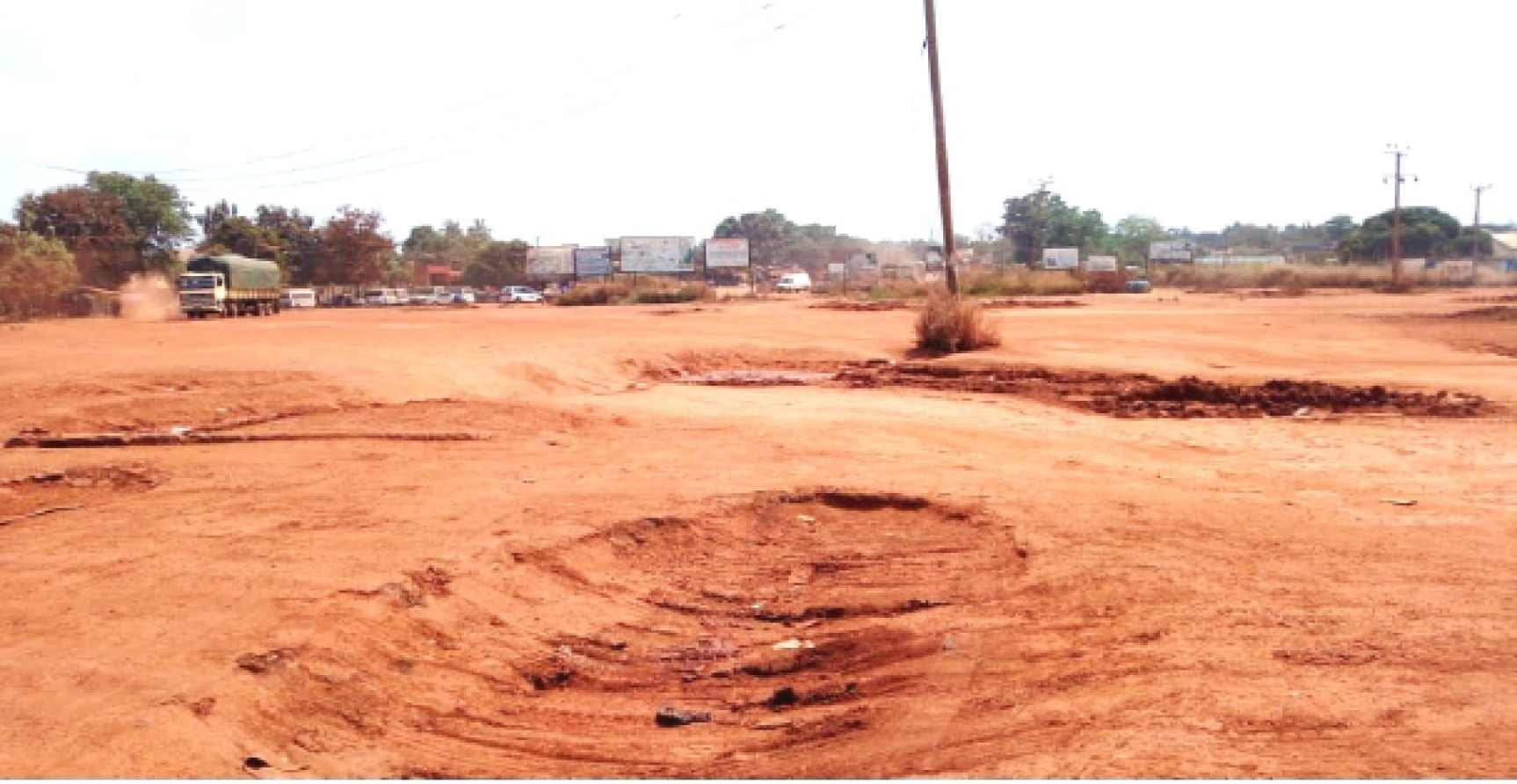Young people have taken advantage of the deplorable sections of the Otukpo-Obollo-Affor road in Benue State to engage in brisk business while commuters and motorists groan over the poor state of the highway referred to as Trunk A. Our correspondent reports that the 89km stretch road from Otukpo axis connects Benue State to Obollo Afor town of Enugu State as well as other south eastern states of the country.
Though rehabilitation work by the contractor, Rock Bridge Nigeria Limited, is ongoing on the Trunk A road, there are however no certainty as to how soon the bad portions referred to by commuters as death traps will be eliminated.
Worrisomely, due to the poor state of the road in the near past, multiple families have had bitter tales to tell about their loved ones who died in accidents while plying the route.
A driver, Targher Ushahemba, who said he travels the road occasionally, lamented that “it hasn’t been a good experience. That road should be good. Government should fix the road as soon as possible.”
Ushahemba however noted that because of the poor state of sections of the road, a driver who knows the terrain would often limit his speed on approaching those bad portions.
Another driver who simply identified himself as Martins, posited that though rehabilitation work was ongoing at a snail speed, three major spots on the road are still death traps.
He listed first of such deadly portions of the road to include the Otukpo Roundabout, then parts of Ugbokolo junction and thirdly the Otukpa-Orokam linking Unyi Egugu, a part of Kogi community, down to Obollo-Affor in Enugu State.
For Joseph ThankGod, 22, who takes advantage of the poor state of the Otukpo Roundabout to sell roasted yam to both motorists and commuters, the government ought to do more in fixing roads in the country.
“This is the biggest roundabout in West Africa and look at its sorry state. You can see things for yourself. Government is not helping us; they are not doing anything about it,” he said.
The 22-year-old secondary school leaver, who had in the past one and a half years engaged in the petty business of roasted yams at the roundabout, added that he has witnessed so many deadly accidents that resulted in loss of lives on the bad spot.
He narrated that apart from road mishaps on the spot, the dust that envelops the air when vehicles ply the road in the dry season was quite disturbing for him and other petty traders.
ThankGod wants the federal government to take action in rehabilitating the roundabout to put an end to the accidents which often occur at the spot.
Apart from the school leaver who is saving to advance his education, the bad portions of the road also serves as a lifeline to many other young people, some of whom are already in tertiary institutions within the area.
They have grabbed the opportunity to trade and earn money because vehicles move slowly at the bad spots rather than becoming nuisances to the society.
Another respondent, Michael Onu, simply posited, “The bad road has given us opportunity to sell yams. I will say it is helping us because vehicles usually don’t move fast here and so, we make quick money to further our studies in tertiary institutions such as the Benue State Polytechnic, Ugbokolo.”
On his part, Godwin Ochai Enojo, a commuter, said the state of the road had improved greatly since rehabilitation work began three years ago but he expressed concerns that the rehabilitation work seems to be executed in piece meals.

“The road was really bad beyond what we now see but they are working on it at the moment; the stretch of the road at Unyi Egugu remains the worse section of the expressway, even as it is right now.
“It used to be a common sight during rainy season to see vehicles involved in accident at that point. You can see the state of the road yourself. It is dry season now. However, they have to work on the road before the next rainy season or it would be dangerous,” Enojo maintained.
An Ibo commercial driver who refused his name on print was rather aggressive in his reaction as he confronted this reporter with all manner of questions in pidgin English.
“If I don die for this bad road, you for dey ask me this kind question? (If I were deceased by now in an accident on this road, would you be asking me my experience on this route?)” he queried.
The driver further accused journalists and the government of being birds of the same feather.
“Na una nah (you are all one),” he added, noting however that his problem was that the road had been in bad shape for many years with little attention paid by successive governments to address the situation.
He however concluded, “E good as you don come; you go see for yourself if we dey enjoy the road (it’s fine that you are here now to experience the condition of the road yourself).”
Meanwhile, a commuter, who interjected the conversation, saying that the poor state of the road had claimed so many properties, was nearly forced out of the moving car.
“Na property you dey talk; what of people wey don die? (Is it property that you are talking about? What about the lives that are lost?),” other passengers chorused abruptly in a heated argument which ensued inside the vehicle we were travelling in.
However, a stopover at the Unyi Egugu section of the Otukpo-Obollo-Affor road showed that drivers had no concern over the right of way around that spot as it depended on the drivers’ ability to manoeuvre their way through whichever side of the road they found easier to ply.
It would be no exaggeration to state that the road section had shrunk beyond a depth of 30cm on either sides, leaving elevated portions in patches and therefore trapping vehicles in difficulties.
Our correspondent observed that despite the condition of the road, scores of articulated vehicles on daily basis convey agricultural produce from communities in Benue State to the southern parts of the country just as those conveying goods from those ends to Benue and other northern states ply the route regularly.
To this end, more pressure appears to be exerted on the road frequently and thereby worsening the condition of the already damaged portions.
A resident of Unyi Ugugu community along the Otukpo-Obollo-Affor road, Musa Sunday, said he had witnessed many loss of lives and property destroyed as a result of the bad portion of the road in his area.

Sunday called for urgent government action in the rehabilitation of that section of the road as he stressed that the Unyi Ugugu and the section just before Obollo are the worst portions of the highway connecting several states.
Some locals in the area who spoke to our correspondent however scored the Enugu State Governor, Ifeanyi Ugwuanyi high for rehabilitating the Enugu section of the road. The claim could however not be verified.
“Ugwuanyi was working on this road but his people rose against him, that he was using their money on the project that is outside his purview,” a villager who refused to be named on print alleged.
At the moment, commuters agreed that the rehabilitation of the road so far was commendable compared to what it was few years ago but they still worried that users will continue to groan and engage in unsolicited dances as they ply the sections of the road yet to be repaired.

 Join Daily Trust WhatsApp Community For Quick Access To News and Happenings Around You.
Join Daily Trust WhatsApp Community For Quick Access To News and Happenings Around You.


